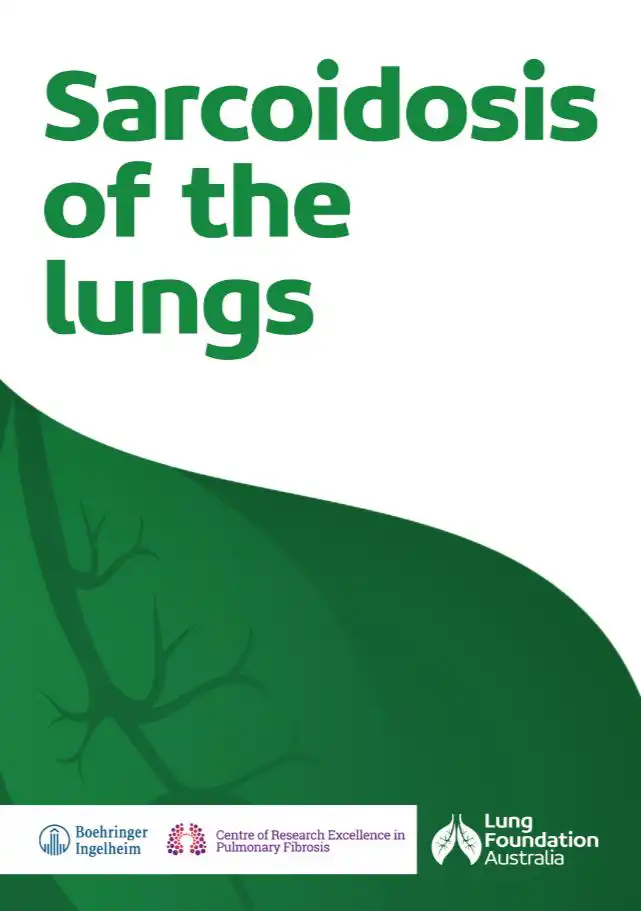The sarcoidosis of the lung fact sheet has been designed to provide an understanding of the causes, symptoms and diagnosis of sarcoidosis.
The resource provides information to support people living with sarcoidosis through symptom management, as well as an overview of the treatments available for sarcoidosis.
Sarcoidosis is characterised by the formation of granulomas, clusters of inflammatory cells, in various organs, predominantly the lungs and lymph nodes. Pulmonary sarcoidosis affects about 90% of patients, but only a small proportion develop significant lung disease.
The exact cause of sarcoidosis remains unknown, though it is believed to involve a combination of occupational, environmental, genetic factors, or atypical infections. Symptoms vary widely depending on the organs affected and can range from none to severe. Common symptoms include a persistent dry cough, breathlessness, chest discomfort, and wheezing. About 20% of patients may develop Interstitial Lung Disease (ILD), leading to lung tissue scarring.
Diagnosis is challenging due to the nonspecific nature of symptoms, which often mimic other conditions. It involves a combination of physical examinations, medical history reviews, blood and urine tests, imaging studies (X-rays, CT, PET, MRI), breathing tests, and biopsies to identify granulomas.
Treatment is not standardised and depends on the severity and progression of the disease. Many patients do not require treatment as the condition may remain stable or improve on its own. For others, treatment options include corticosteroids, immune-suppressing medications, TNF inhibitors, and inhalers. Management also involves lifestyle modifications such as regular exercise, a healthy diet, vaccinations, and oxygen therapy if needed.
Patients are encouraged to stay connected with their healthcare team for regular monitoring and support. Emotional and psychological support through counseling or support groups is also recommended to help manage the condition. If you or someone you know is affected by sarcoidosis, reaching out to the Lung Foundation Australia can provide valuable support and information. They are dedicated to helping patients navigate their journey and access the best possible care. For more information and support, individuals can contact the Lung Foundation Australia’s Information and Support Centre at 1800 654 301 or visit their website.
Was this page helpful?
Good job! Please give your positive feedback
How could we improve this post? Please Help us.
